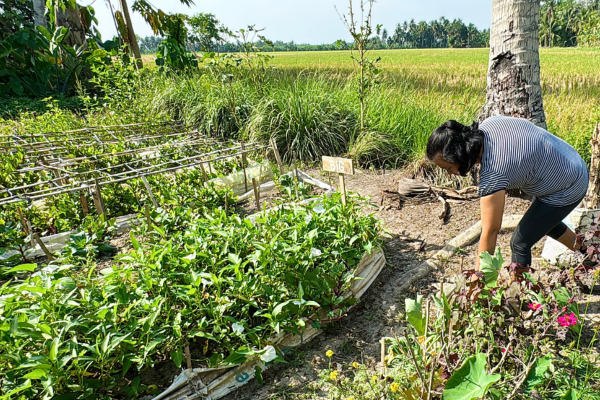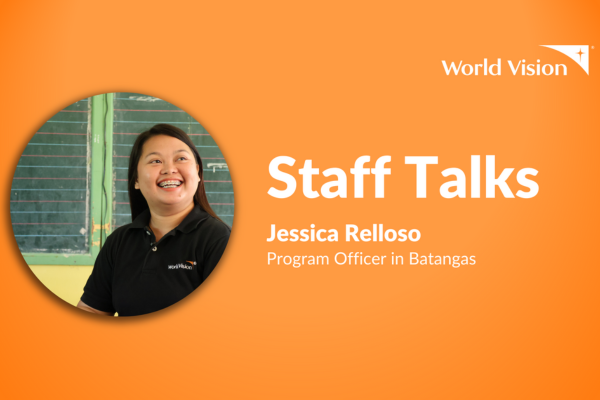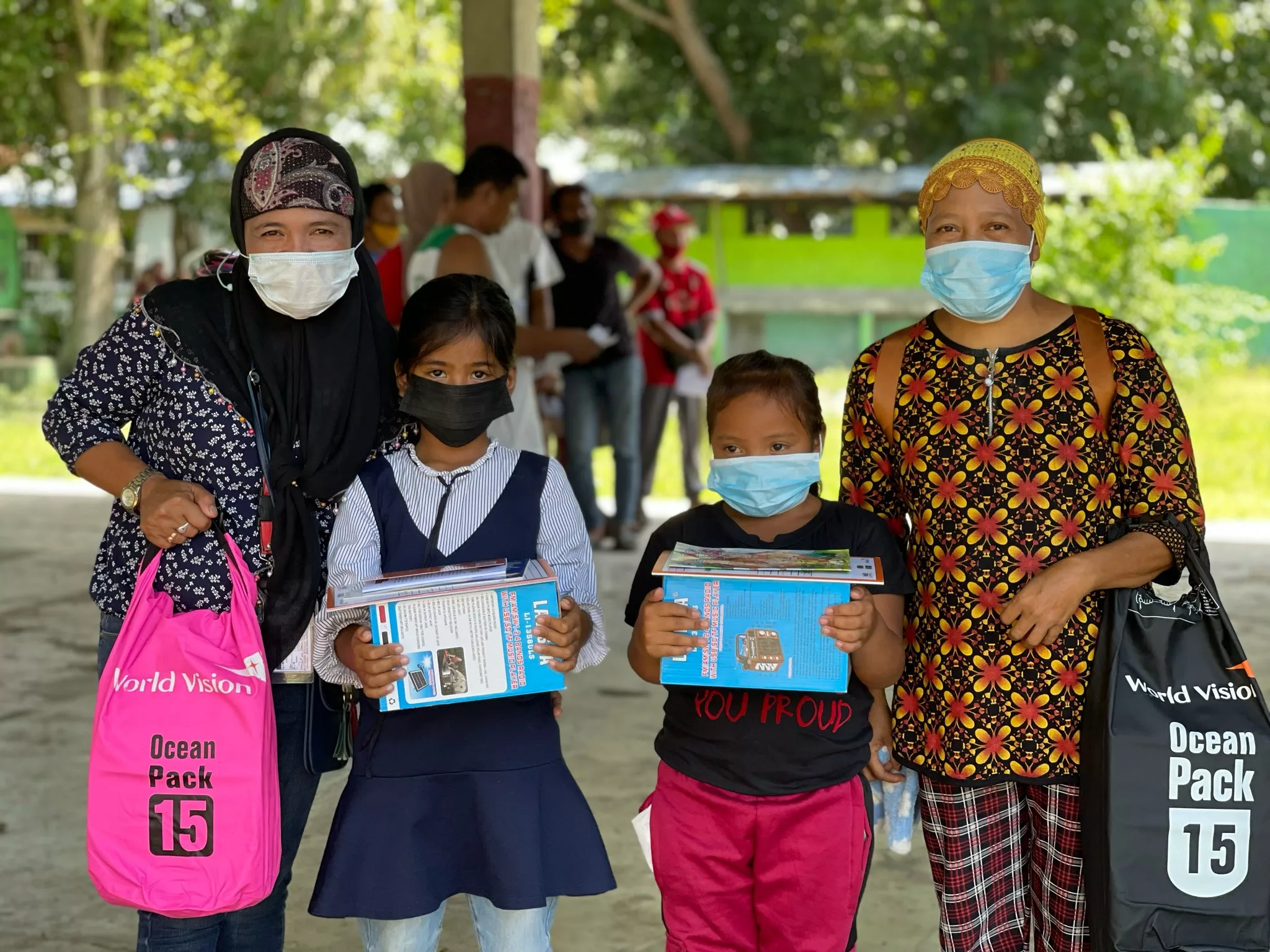Village demo farm champions earth-friendly farming practices
By Roxanne Angelika S Dela Cruz | Field and Emergency Communications Specialist
NORTH COTABATO, PHILIPPINES — Eva, 48, mother of twin boys, has been busy tending to a vegetable garden in the community’s demo farm. She’s proud of the recent harvest they had that produced chemical-free vegetables and sold well in the local market.
The demonstration (demo) farm has been the community’s learning site about sustainable agriculture. “Back then we only had one structure,” she shares. “Today, we have a greenhouse, storage room for farming tools, a nursery, herbal garden, concoction area, and a kitchen,” she adds with pride.
The expansion of the learning hub brought excitement among the farmers, their families, and the neighborhood sparking a newfound interest in caring for the farm.

According to Eva, she and some of the village farmers had been curious about alternative farming practices. One day, they received an invitation to attend a training on organic farming organized by World Vision and its partner organization, the Philippine Rural Reconstruction Movement (PRRM). Eva and her fellow farmers seized the opportunity that change their approach to farming.
“Our farmers’ association was just another organization for its members back then,” Eva reflects. “However, with our partnership with World Vision and PRRM, our association members have found renewed excitement and engagemet.”
World Vision and PRRM are currently implementing a Climate Smart Agriculture (CSA) project in the community funded by Germany’s BMZ or the Federal Ministry for Economic Cooperation and Development which has been advocating for climate change adaptation.

CSA promotes climate-resilient practices in agriculture to address the challenges from climate change and food security.
Eva would constantly tell her fellow farmers to help maintain the farm. “We gather here every Saturday and farm together. I always remind them that this demo farm is truly beneficial to us, especially to our livelihood.”
The demo farm serves as an occasional hub where members listen to farm lectures, a place to experiment with growing plants and concocting organic fertilizers and pesticides.

With all these, the demo farm is generating an average of Php500-Php700 ($9-$13) a month from vegetables, and Php34,000 ($236) per 63 kg of organic rice per cropping season. The income serves as funding for the farmer’s association to support the ongoing operations of the demo farm.
Raised in a family of farmers, Eva’s grandfather once told her that “… everything that grows from nature will benefit you.”
Eva laughs, remembering how her grandfather’s wise words were made to retort her mother’s urging to “study hard and not go back to the farm”.
These days, Eva introduces her twins, Joerenz and Joebenz, to organic farming. The fourth graders find it fun to explore the demo farm. The boys would harvest eggplants, squash, and bottle gourd, and go fishing.









